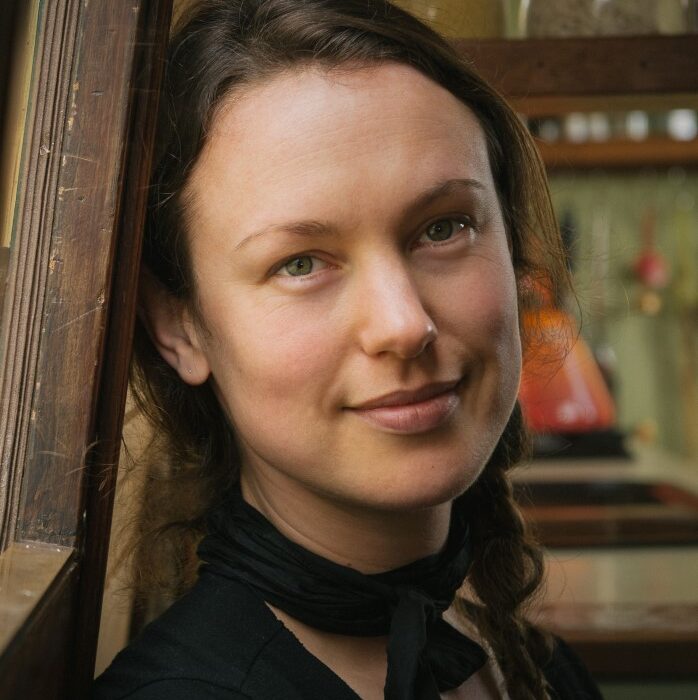By Dan Goater
A midwife from Weymouth who has saved thousands of lives in warzones, earthquake hit regions and refugee camps around the world is sharing her incredible story in a new paperback.
Frontline Midwife by Anna Kent, a cardiology nurse and midwife at Dorset County Hospital, details her years of volunteer work with Médecins sans frontières (MSF) in Sudan, Haiti and Bangladesh.
From delivering triplets in mud huts, treating gunshots and spear wounds to suffering from post-traumatic stress disorder and her own miscarriage, Anna says sharing her at times heart-breaking story is her way of ‘speaking up’ for vulnerable women everywhere.
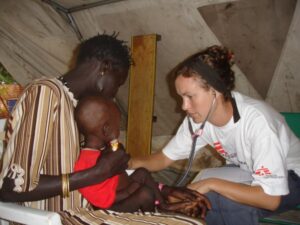
Anna knew she was meant to help other people when, aged six, she watched Live Aid on TV and was shocked to learn so many people around the world were still starving and living in poverty.
Anna grew up and trained to be a nurse, working in A&E departments for three years before, aged 26, applying to work for MSF.
“I had quite a naïve view of the world,” Anna said, “that I could single-handedly make a huge difference and feel satisfied that at some point I would come back home feeling heroic.
“I went to Sudan – now South Sudan – with MSF in 2007 and it was a really shocking wake-up call for me.
“I worked for a year in the middle of nowhere as one of only two medical providers for an area the size of Belgium, with an estimated one million landmines.
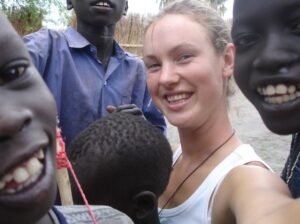
“People had endured years of civil war, but they also needed everyday medical care for things like broken wrists, headaches, toothaches as well as midwifery care.
“I was treating people for gunshots and spear wounds, injuries from landmines as well as malaria and other diseases like kala azar (black fever) and schistosomiasis.
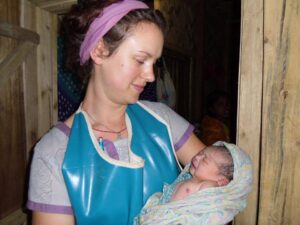
“One day myself and the other nurse I was working with treated more than 500 children for malaria.”
Anna accomplished this while living in a single tent in 50 degree heat with no running water or electricity. She added: “Despite the really basic set-up we did save the vast majority of people who came to us. We were treating around 1,000 patients a month.”
While in Sudan, Anna helped train local hospital staff in midwifery techniques. They sometimes had to suffer the loss of patients due the conditions. “We couldn’t do surgeries because we were in mud huts. We could sometimes get people airlifted out to a surgical hospital if the local runway wasn’t too muddy for planes to land or take off.
“It’s awful to see people die under your care that, if they were in the UK, you know would have survived.
“South Sudan is still one of the most dangerous places in the world to give birth. Not just because of the war but because of the low social standing of women, no hospitals, no midwives, no scans. There was an awful local saying that pregnant women have one foot in the grave.
“I helped a woman called Grace give birth to triplets. I wasn’t trained as a midwife at that point, but I made a commitment to myself that I would train to become one.
“Grace suffered a major bleed and had to have a hysterectomy after giving birth, but I was able to save her life and her babies.”
Anna returned to the UK and got a midwifery degree from Nottingham University, before going to Haiti with MSF in 2010 after the island nation was rocked by a devastating earthquake. She worked in a tent hospital and remained on the island to help deal with a cholera outbreak following the quake.
In 2011, Anna went to work for MSF in Bangladesh, helping provide medical care for some 30,000 Rohingya refugees living at a camp after fleeing Burmese persecution.
Anna worked with a doctor to set up a hospital and built a birthing unit out of bamboo. She also helped train 25 midwives at the new hospital, which is still running to this day.
Anna also heard ‘endless’ stories of torture, trafficking and sexual violence.
After returning to the UK Anna suffered what she called a ‘mental health breakdown’ and was diagnosed as suffering from a form of post-traumatic stress disorder.
“I was at work and had hallucinations,” she said, “I could see with my eyes – it was all emotions and sense – but I could hear and smell the monsoons of Bangladesh. It was very scary.
“There are so many women out there who have it so much worse that, at the time, I felt it was indulgent to say I felt overwhelmed. But I’ve learned since then that with your mental health it’s no good to bury things away.”
Anna said she hit a low point in her early 30s – sofa surfing, drinking too much and having a ‘series of one-night stands’ while seeing her friends getting married and starting families.
She said she later had a ‘wake up call’ moving to a Buddhist community for a period while MSF paid for her to have cognitive behavioural therapy.
“It saved my life,” Anna said. “I think whenever you have anxiety you learn to live with it rather than ever making a full recovery.”
Anna returned to Bangladesh to teach the country’s first midwifery course and met and married a Bangladeshi man with whom she conceived her first child.
Sadly, Anna’s unborn daughter suffered a rare brain tumour in the womb. Anna miscarried on what was meant to be her wedding day.
“I really underestimated the depth of that sense of loss,” Anna said. “It was a shock to learn before she was born that my daughter would die of something I hadn’t even heard of or treated before in all my years in midwifery – it seemed additionally cruel.
“I had to give birth to her knowing she would die. I also suffered a bleed after the birth and, this time, a midwife saved my life.
“If I had been in any of the places I had been to with MSF, I would have died.
“I don’t think you ever get over the loss of a child but, having had a breakdown, it taught me a healthy way of dealing with grief.”
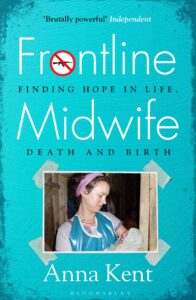
Anna, who is now a mum to six-year-old Aisha, has divorced her partner but continues to find purpose in serving the community through her work at Dorset County Hospital. She also spends her free time meditating and sea swimming, which she says ‘helps me keep a form of balance and be a better mum’.
She added: “I wrote most of my book in the lockdown. It started as a mental health exercise, but I realised when I was writing it that it had become a testament to the women I have worked with and my own love of midwifery.”
Frontline Midwife, published by Bloomsbury, is available in hardback and now paperback at independent local book stores, Waterstones and from Amazon.
It is also available as an ebook and audiobook, read by Anna herself, and has previously been selected as one of The Independent’s non-fiction books of the month.




